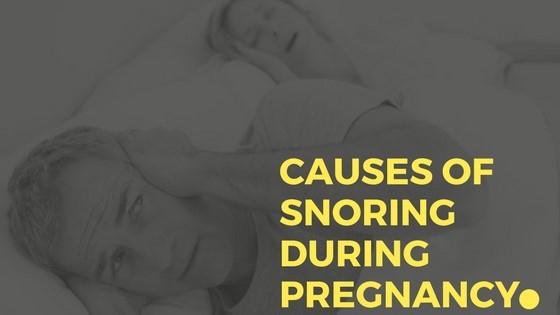My Partner Drinks Too Much – Where Should I Call?
Knowing that your partner consumes alcohol in excess can create a lot of worry and disappointment in a relationship. You may feel distant from your partner -the feeling of them being taken away from you both literally and metaphorically. One of the reasons could be the “out of the house” drinking where they can come off as completely different as a person.

Perhaps you have tried broaching the topic with them and it didn’t go the way you had hoped. Maybe they accused you of nagging them or disagreed to acknowledge an apparent issue. For numerous couples, the alcohol problem takes years of bubbling beneath the surface before it comes up to the point of contention.
Drinking Addiction – Signs to Look Out For
Even though it might make you hesitate to question your spouse about their drinking habits, the longer you leave the issue unresolved, the longer the likelihood of the problem worsening. If you believe that your wife or husband drinks too much, approaching the situation head-on but with care, as soon as possible, is crucial for both you and them.
According to a recent study, looking into the impact of heavy drinking on marriage and relationships, if one spouse is found to be a heavy drinker to the point of intoxication, the couple is 50% more likely to get a divorce.
Here are some of the signs to look out for that would flag an alcohol use disorder in your partner/spouse:
- They would spend a large amount of time at clubs, away from home
- Misses family events or work due to drinking
- Finds it difficult to avoid drinking on holiday or in the evening
- Alcohol negatively impacts the crux of their personality
What To Do and Where to Call?
It is important to call for help outside when looking for support, especially from those who have had experience in addressing individuals with alcohol disorders.
If you are unsure how to approach your partner about a drinking issue, the following tips may assist you in finding clarity. Grabbing helpful resources may be a top priority for people whose spouses are battling an alcohol use disorder. The West Palm Beach alcohol rehab specialists offer the following suggestions:
Open Communication:
Be sure to voice your concerns in a clear, calm, and loving manner. It is crucial to remember that by keeping the lines of communication open, your goal is to bring together the detrimental effects of excessive alcohol use, reminding your partner that they have your support throughout the process whenever they are willing to seek treatment or relevant rehabilitation care.
Pick a time when your significant other is sober and approachable for a conversation. An unclogged mind makes it easier to discuss serious issues arising because of an alcohol use disorder.
Find Out the Contributing Causes:
Those that drink heavily rarely enjoy the taste and feel of alcohol. They drink, more often, just to escape life situations that can cause them feelings of depression, anxiety, worry, and other negative expressions.
Addiction specialists should begin treatment by first touching upon the root cause of alcohol use and mental health concerns that may push forth ongoing drinking issues. By keeping in check, the “whys” of alcohol disorder, treatment can prove to be more effective.
Avoid The Ultimatums:
If you insist on pursuing hard options like, “If you don’t stop drinking soon, I will leave!” be ready for the possibility that your partner picks alcohol over you. That will only increase pain, frustration, and heartbreak in the relationship. Step forward to look for advice and options for help such as programs following a format your spouse would consider.
Present Zero Judgement:
The persons experiencing alcohol use disorder may already feel low self-esteem and shame. Its lure is, indeed, powerful. Avoid presenting biased judgment or berating. Morally or personally shaming them is likely to reinforce their drinking habits in a fit of denial, anger, and/or frustration.
Have Resources? Use Them Wisely:
If you know someone who has gone through a similar alcohol disorder experience and is now on the way to recovery, find out how they are doing it if they are open for discussion. Ask for sincere advice. Talk about the best way to approach your partner. Ask if that individual will be willing to speak to your spouse since sometimes information from someone who has “been there, done that” can be more compelling.
Be The Role Model:
If you are sure that your partner is experiencing an alcohol use issue, avoid consuming a drink in front of them even if the “social” situation calls for it. Be their support throughout the journey through utmost love and consideration.
Be Present for Detox and Recovery
Be sure to look into alcohol use disorder and educate yourself along with other family members. Encourage your partner in their attempt to get sober. Let them know that you realize how difficult it can be and how proud you are of their honest efforts. If possible, attend support group meetings and get advice for yourself. Continued support is best for effective rehab and recovery.
Family therapy sessions and ongoing aftercare, among other elements of rehab, are essential for continued recovery. Detox and rehab services such as United Recovery Project offer luxurious programs which include family members.
Summary
There is a great deal of stigma surrounding the treatment of alcohol use disorder. The only way to tackle the taboo is to shatter the myths that have erupted because of it.
- Rehabilitation is not a one-time solution; relapses are pretty common.
- With the wide range of options available, rehab does not only have expensive options.
- Medications reduce the likelihood of relapse.
- If you perform well on the job, you have not relapsed.
In case your partner is experiencing symptoms of an alcohol use disorder, accompanying them to rehab is not something to be ashamed of. The myths encapsulating the idea of rehabilitation have already caused significant damage to society and should not perpetuate further.






